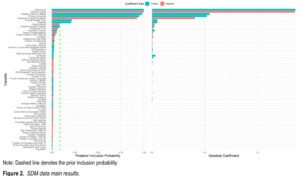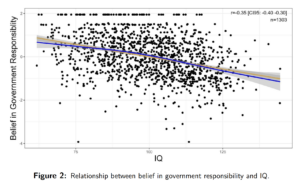On various socialist and egalitarian writings as well as the academic literature, one can find attacks on intelligence testing due to the bad early guys. One common example is Carl Brigham, who supposedly said:
… the army mental tests had proven beyond any scientific doubt that, like the American Negroes, the Italians and the Jews were genetically ineducable. It would be a waste of good money even to attempt to try to give these born morons and imbeciles a good Anglo-Saxon education, let alone admit them into our fine medical, law, and engineering graduate schools.
And he was supposedly referring to “like the American Negroes, the Italians and the Jews”. That seemed unlikely, so I looked it up. First, the book title is wrong, it’s “A study of American intelligence” (1923) not “The Measurement of Intelligence” a 1924 edited book by Edward L. Thorndike, E. O. Bregman, M. V. Cobb, Ella Woodyard. Now, I’ve downloaded both books, and this quote doesn’t exist anywhere. The academic paper (Graves Jr, J. L., & Johnson, A. (1995). The pseudoscience of psychometry and the bell curve. Journal of Negro Education, 277-294.) cites the book as “Brigham, C. (1923). A study of American intelligence. Princeton, NJ: Princeton University Press”. This is the same version found on Internet Archive:

Graves and Johnson claim it is on page 210, but here’s page 210:

It’s not there. I searched the book for various other words, maybe they got the page number wrong. But no, there’s only 1 mention of “Anglo” in the book, on page 194:
If intelligence counts for anything in the competition among human beings, it is natural to expect that individuals of superior intelligence will adjust themselves more easily to their physical and social environment, and that they will endow their children not only with material goods, but with the ability to adjust themselves to the same or a more complex environment. To select individuals who have fallen behind in the struggle to adjust themselves to the civilization their race has built as typical of that race is an error, for their position itself shows that they are, for the most part, individuals with an inferior hereditary endowment.
In the same way, our educational institutions are themselves a part of our own race heritage. The average negro child can not advance through an educational curriculum adapted to the Anglo-Saxon child in step with that child. To select children of equal education, age for age, in the two groups, is to sample either superior negroes or inferior whites.
He is making a sensible point about what would later be called the sociologist’s fallacy. Jews are also not a big focus of the book, but he does mention some of their results in 2 places:
It is difficult to check our results from the analysis of the foreign born white draft by country of birth (reported in Section VI) with the results of other investigators, on ac- count of the different tests that were used, and the different methods of selecting subjects. Miss Murdoch 2 examined, by means of the Pressey group point scale, 500 Jewish children and 500 Italian children at one school in New York City, and 500 American children and 230 negro children at another school. The American and Jewish children tested about the same. About 15% of the Italians equalled or exceeded the median of the Jews, and about 30% of the negroes equalled or exceeded the median of the Jews. The investigation equalizes the environmental factor by selecting, in one instance, Italians and Jews from the same school and consequently from the same general neighborhood (East 110th St. near 2nd Ave.), and, in the other instance, by selecting native white and negro children from the same general neighborhood (West side, 8th Ave., near 140th St.), but the American children living in this neighborhood can not be taken as typical of the country as a whole.
In other words, Jews scored about the same as natives, but Italian performance was terrible, presumably because they didn’t speak English well or weren’t too interested in testing to get drafted to go fight Germans in France. He goes on to note that it is unfortunate that ethnicity data isn’t reported with more fine-grained results so that one could see the performance of Russian Jews. Russians didn’t perform well, and this is a substantially Jewish group, but he finds that the standard deviation (spread) of scores is quite high, suggesting sub-populations of different ability levels.

It would appear then, that Graves (above) or Johnson made it up, or wrongly quoted it from somewhere else. I can’t find any original document with this quote older than their 1995 paper, however, so it doesn’t seem so likely they simply misquoted it. Perhaps if it was phrased somewhat differently somewhere, but that’s hard to find. Fraud? It’s not unlikely. Graves is a career race denialist.


